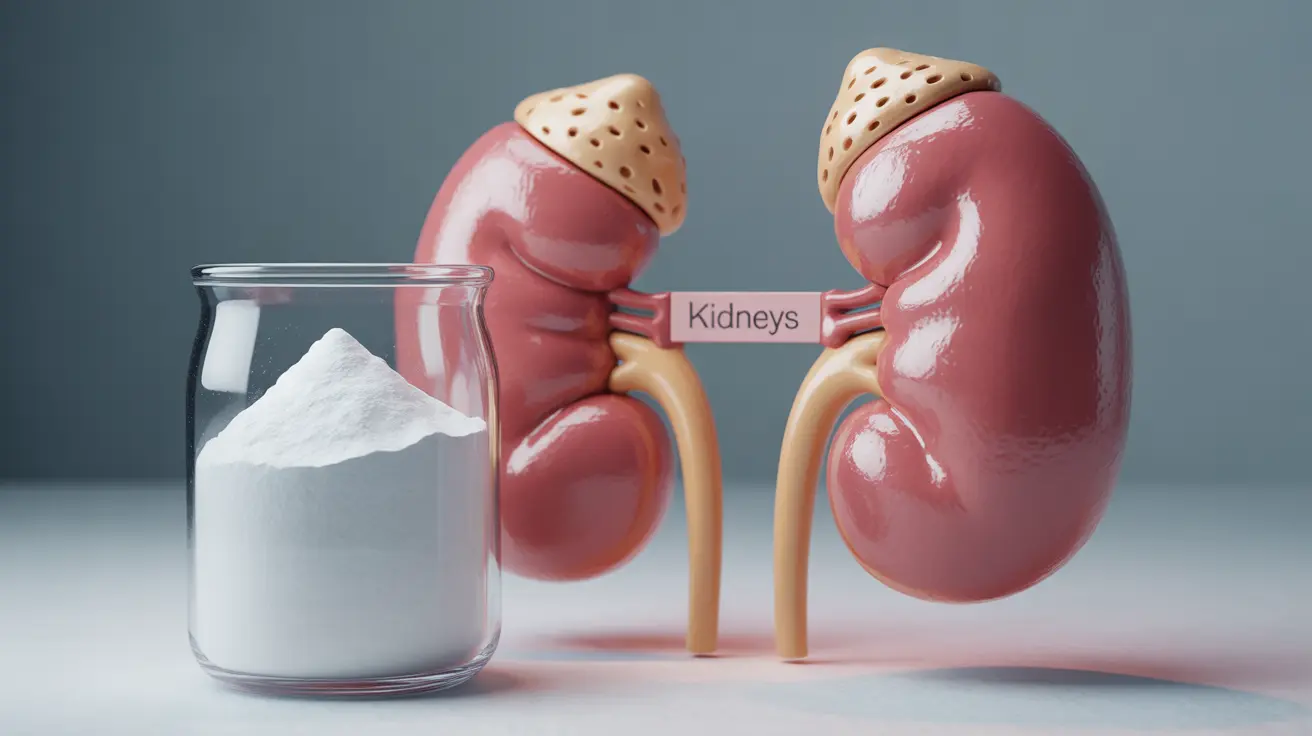For individuals living with chronic kidney disease (CKD), managing their condition effectively often requires exploring various treatment options. One potential supplement that has gained attention in the medical community is baking soda, or sodium bicarbonate. This common household item may play a significant role in helping some patients with kidney disease maintain better health.
Understanding how baking soda can impact kidney function and when it might be appropriate as part of a treatment plan is crucial for both patients and healthcare providers. Let's explore the science behind this treatment approach and its potential benefits and risks.
How Baking Soda Helps with Kidney Disease
When kidneys aren't functioning properly, the body can develop a condition called metabolic acidosis, where blood becomes too acidic. Baking soda, being a natural alkaline substance, can help neutralize this excess acid and maintain a healthier pH balance in the blood.
Research has shown that sodium bicarbonate supplementation may help slow the progression of CKD in some patients by addressing this acid-base imbalance. This can potentially protect remaining kidney function and improve overall outcomes.
Understanding the Benefits
The potential advantages of using baking soda for kidney disease include:
- Slowing the progression of kidney disease
- Reducing acid levels in the blood
- Potentially protecting remaining kidney function
- Helping maintain stronger bones
- Improving nutritional status
Medical Supervision and Proper Usage
It's crucial to understand that baking soda supplementation for kidney disease should never be self-prescribed. This treatment requires careful medical supervision and monitoring for several reasons:
Healthcare providers need to:
- Monitor blood sodium levels regularly
- Adjust dosage based on individual needs
- Check for potential interactions with other medications
- Assess overall kidney function and response to treatment
Potential Risks and Considerations
While baking soda can be beneficial for some patients with kidney disease, it's not appropriate for everyone. Some potential risks include:
- Increased sodium levels in the blood
- Fluid retention
- Blood pressure changes
- Stomach upset or bloating
- Potential interactions with certain medications
Lifestyle and Dietary Support
Using baking soda for kidney disease works best when combined with other healthy practices:
- Following a kidney-friendly diet
- Maintaining proper hydration
- Regular exercise as approved by healthcare providers
- Consistent medication compliance
- Regular medical check-ups
Frequently Asked Questions
Can baking soda (sodium bicarbonate) really help slow down kidney disease, and how does it work?
Yes, baking soda can help slow down kidney disease progression in some patients by neutralizing excess acid in the blood. It works by helping maintain proper pH balance, which can reduce stress on remaining kidney function and potentially slow disease progression.
What are the potential side effects and risks of taking sodium bicarbonate for kidney problems?
Common side effects include fluid retention, increased blood pressure, stomach discomfort, and potential electrolyte imbalances. The biggest risks come from improper dosing, which can lead to dangerous changes in blood chemistry.
Who should use baking soda for kidney health, and when is it not recommended?
Baking soda therapy is typically recommended for patients with confirmed metabolic acidosis due to kidney disease. It's not recommended for patients with certain heart conditions, severe fluid retention, or those with well-controlled acid-base balance.
How much baking soda should you take for kidney disease, and how is it best used to minimize side effects?
The dosage must be individually determined by a healthcare provider based on blood tests and overall health status. Typical doses range from 600 to 1200 mg daily, taken in divided doses with meals to minimize stomach upset.
Are there lifestyle or dietary changes, besides sodium bicarbonate, that can help manage metabolic acidosis in chronic kidney disease?
Yes, consuming more alkaline foods, reducing protein intake as recommended by your doctor, maintaining proper hydration, and following a kidney-friendly diet can all help manage metabolic acidosis. Regular exercise and stress management can also support overall kidney health.




